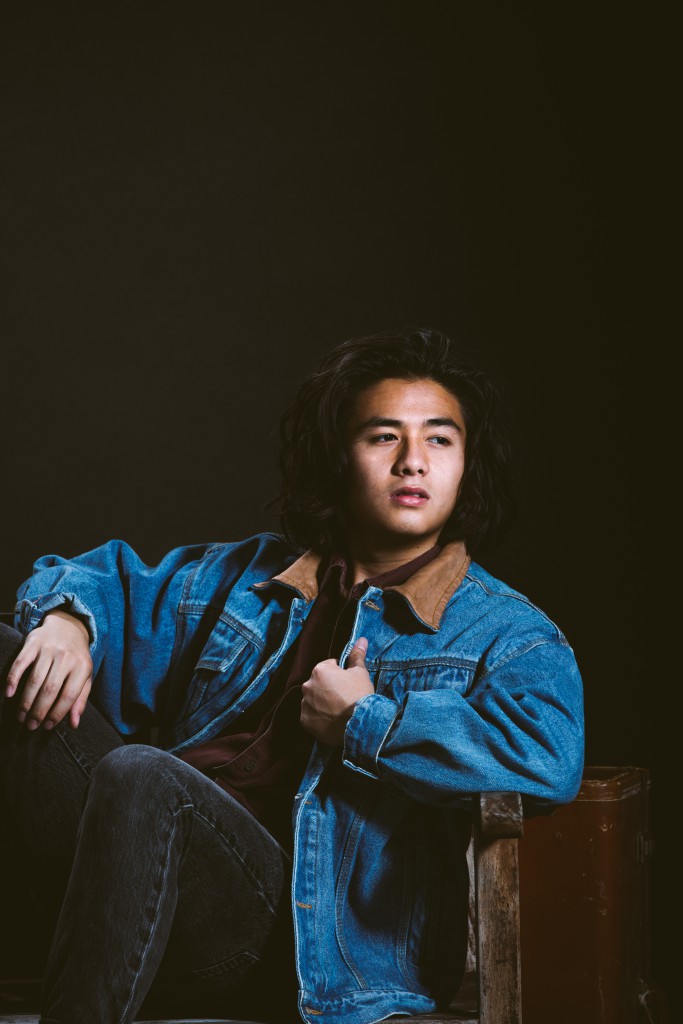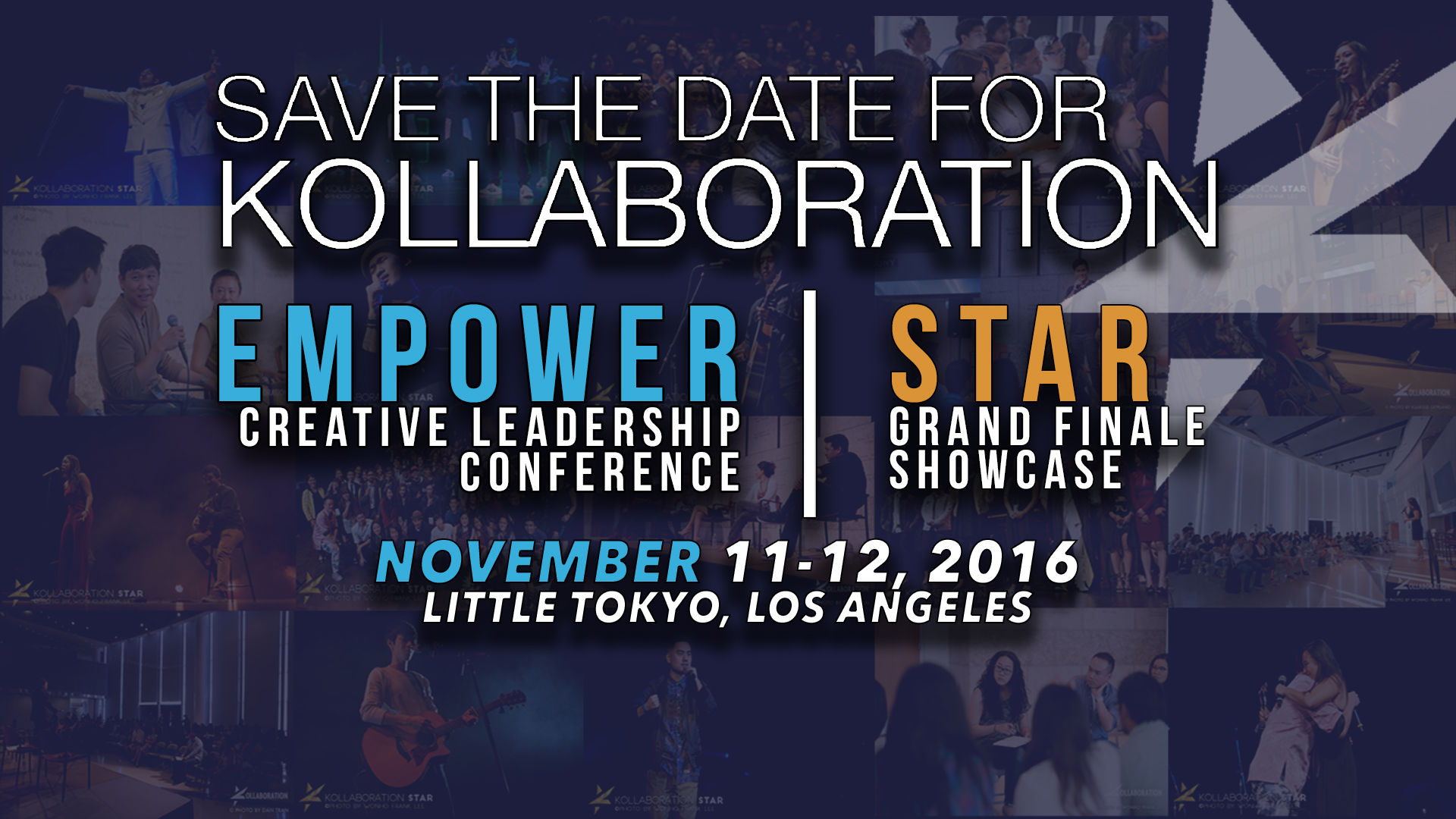Kollaboration Los Angeles’ Timothy John Gonzales, singer-songwriter
I’m 22 and I just graduated from University of California Irvine, half of my college career was mechanical engineering but I ended up with business economics. I decided to do this whole music thing legitimately, and all my passion goes toward that and mechanical engineering was sucking my life out of my body. I’m Chinese-Filipino, but culturally I’m fully Filipino. I’m not originally not from California, I was born and raised in New Jersey. I moved around a lot as a kid, then I came to California in the middle of my ninth grade year of high school.
How did you hear about Kollaboration?
I had a friend who won Kollaboration LA in 2013, but I didn’t think I was ready to play until this past Kollaboration. Actually, that’s a lie— I was ready to play last year, but I missed the audition. I actually know quite a few people who have played for Kollaboration but I wasn’t really ready at the time. This year, I’m actually glad I didn’t do it last year because now I feel like I’ve actually developed a sound and something that I’m proud of.
What does it mean that you’ve gotten this far?
In terms of Kollaboration, I couldn’t be more humbled to be there. I’m just glad that I was able to play. I didn’t really expect much, there’s some photos that I was pretty shocked that I won. STAR is going to be great, we have a bigger line up, it’s going to be good. I’ve been kind of going by what one of the judges at LA told me— she was explaining that when we play, it’s always as if there was nobody else in the crowd, we’d still be playing the exact same way. That’s what I want to stay true to. It’d be nice to win, but I’m honestly just grateful for the opportunity.
How did you get into music?
I started playing guitar when I was 12, my dad is really into music and my whole life I’ve been singing. I’ve always been around a lot of music, a lot of my family members play instruments and sing. It wasn’t until I moved to California where I kind of developed my sense of what I thought music was and what is was to me, the self expression and the art versus a sound. It was a lot of darker times, moving here, it was a heavy time where I was able to discover myself as a songwriter. It wasn’t until becoming a songwriter that I really fell in love with music and the ability to create something out of nothing. I love having an idea in my mind and seeing it come to fruition, having a tangible product.
Who are some of your influences?
Definitely my family, I wouldn’t be here playing music without my dad or my brothers. In terms of artists, I love old American folk songwriters. I’m kind of late to the game, but I fell in love with blues when I was 17. That’s been my bread and butter, I love to express in terms of guitar playing the most. People say I sound like Hozier, James Bay, and the guy that I love right now is Matt Corby, he’s a huge influence for me. A lot of inspiration from blues and soul, and a focus on songwriting.
Do you normally play covers or your own music?
I barely ever do covers, I write all my own music, arrange and write. I like covers, but I’m not a huge fan of playing covers because for me I lose a sense of myself in playing other people’s music. It’s kind of like this romance in playing your own music, you’ve been with it, you’ve cherished it. Especially when you’re writing, it’s really intimate because you have to keep playing the song a million times to get it right. It’s really special to me to play my own music.
What’s your advice for songwriters?
Anyone can really do it. I describe myself very much so as a songwriter, so if I’m going to be completely honest, I’d say to be aware. When you’re writing a song, you’re trying to tell a story. I think a lot of the time people forget that your melody also tells a story. If your lyrics are telling one story and your melody is telling a different story, it’s not going to go together.
How was it to release your own EP?
So the intent was not to sell records, I just wanted a tangible product to give to people to listen to or for something to hand to people. It was interesting, I learned a ton about myself as a musician. I wasn’t entirely happy with the EP, but it was great because I learned what I want my sound to be like. I learned that I’m an artist that actually sounds better live. People talk about, “I wish you could put the emotion that you portray into a record,” which now I’m working on making another record and I would love to dig deeper into how to do that. It was a low-budget EP, and I’m proud of it for sure. But I know I can always do better.
Why do you think representation in the arts is important?
I think it’s definitely something that’s been neglected, or overlooked. It’s not so much there isn’t anybody around, it’s just nobody’s paying attention or giving any opportunities. I’m all about Kollaboration and I love that they’re offering a platform for Asian Americans to play. I think we’re in the times right now, especially in America, there’s a bridge now that we can cross and we just need to make enough names to change stereotypes. At the end of the day, I really truly believe that if you’re just good, people can’t deny you. Especially as a musician, if you hone your craft, and you’re passionate, people can’t ignore the sound.
Do you have advice for people who want to get started but are too scared?
If I’m going to give advice to Asian Americans, I would say, write. A lot of the time the focus is put on covers, and we need to create original content. People will see that Asian Americans are creating, versus just like twisting. So I would love for younger Asian Americans artists who are looking for advice to think to the roots of creating art. Writing songs, composing music, it’s becoming a lost art.
Follow Kollaboration Los Angeles to keep up with Timothy John and be sure to catch him at Kollaboration STAR.

